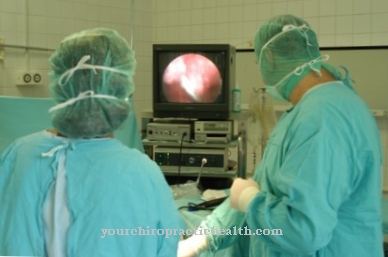The abnormal mammary gland secretion is one of the secreting (i.e. secreting a secretion) diseases within the mammary gland. This leads to a discharge of secretions from the nipple outside of the breastfeeding period.
What is abnormal breast secretion?

© PATTARAWIT - stock.adobe.com
The abnormal mammary gland secretion belongs to the class of secreting diseases of the mammary gland or the secreting mamma. This term covers all secretions of fluids that come out of the mammary gland outside of the breastfeeding period.
The secretion can run out independently and spontaneously or it emerges from the nipple after applying slight pressure. In the case of secreting diseases of the mammary gland, medicine differentiates between galactorrhea or milk secretion and the secretion of other types of secretions. The latter are also known as abnormal mammary gland secretions.
The term pathological breast secretion covers all secretions that are not milky in terms of their type. There are no reliable data on how often abnormal mammary gland secretions occur.
causes
The causes of a abnormal mammary gland secretion are diverse. However, the most common causes include benign changes in the mammary gland, which is also known as mastopathy. Benign tumors such as a papilloma or a fibroadenoma can lead to secretion from the mammary gland.
Adenomas of the nipple occur when extensive ducts change directly below or within the nipple. It is then possible for a bloody secretion to leak from the nipple of the diseased breast. Inflammation of the mammary glands outside of breastfeeding, which is known as non-puerperal mastitis, is also one of the potential possibilities for pathological discharge from the nipple.
A comparable situation arises in the case of a so-called milk duct sectasia or a widening of the milk ducts. A pathological secretion of the mammary gland can also be caused by serious diseases, which include breast cancer and Paget's disease.
Symptoms, ailments & signs
A pathological secretion of the mammary gland can first be recognized by the secretion from the nipple. Affected women notice a non-milky liquid that is usually whitish to transparent and can take on a liquid to slimy consistency. Depending on the cause, the secretion can have a different color, consistency or amount.
Yellowish, greenish, brown or bloody secretions are also possible. Occasionally, the abnormal secretion of the mammary gland is associated with other symptoms such as itching and pain. In addition, there is a slight reddening of the nipple and the adjacent skin areas. The symptoms often have an impact on the patient's aesthetics.
If there is an accompanying inflammation of the breast or nipple, further complications can arise. This can lead to swelling and severe pain, which increases as the underlying disease progresses. The symptoms can only occur in one breast or affect both sides.
Spontaneous healing is possible in acute mastitis. Sometimes, however, fistulas or ulcers can form, which are associated with other problems. If the mammary gland secretion occurs again and again, it can turn into a chronic disease with further symptoms and complaints.
Diagnosis & course
A abnormal mammary gland secretion is diagnosed by a specialist (usually the gynecologist). First, the patient's medical history is recorded. The attending physician then palpates the chest as part of the physical examination. He pays particular attention to changes in the tissue or hardening.
Analysis of the consistency and color of the secretion are also crucial for an exact diagnosis. Watery or bloody discharges indicate proliferating lesions. Yellowish to greenish and brownish to black secretions, on the other hand, indicate widening of the milk ducts.
In a laboratory, a sample of the discharge is analyzed for abnormal cells and any potential germs. In addition, imaging methods such as an ultrasound examination or mammography are also used. Changes in the mammary gland can often be precisely located. A galactography is suitable for checking the milk ducts. The further course of the disease depends on the actual underlying disease, which has caused a pathological secretion of the mammary gland.
Complications
As a rule, this disease causes various complaints on the breasts of those affected. In most cases, these complaints are associated with pain and are very uncomfortable due to the sensitive body region. In most cases a secretion emerges. Furthermore, those affected also suffer from severe itching and reddening of the skin in the area of the breasts.
These complaints not infrequently also limit the aesthetics of the patient and thus lead to a significantly reduced quality of life. In addition, there may be inflammation of the chest, which is also associated with severe pain. As a rule, self-healing does not occur, so that patients are definitely dependent on treatment by a doctor.
In most cases, however, the underlying condition must be treated to completely limit the symptoms. Usually drugs and antibiotics are used. Special complications usually only arise when breast cancer is the causal disease. In the worst case, this can lead to the patient's premature death. In other cases, the patient's life expectancy is not affected or reduced by the disease.
When should you go to the doctor?
Outside of breastfeeding, a doctor's visit is required if secretions of any kind are released from the mammary gland. If the liquid is not milky in nature during breastfeeding, it should be examined more closely by a doctor. If the secretions occur only at certain intervals, continuously or in an increasing form, a doctor is needed. If there is an additional odor, this is considered worrying and must be clarified by a doctor. Itching, changes in the appearance of the skin or open wounds on the chest require a doctor's visit.
Further pathogens can enter the organism through the wounds and lead to the outbreak of additional diseases. Therefore, sterile wound care is necessary. If you have sufficient medical knowledge, you can do this yourself, otherwise it should be done by a doctor. If there is a pus formation on the nipple, a visit to a doctor is advisable. Consultation with a doctor is recommended in the event of chest pain, swelling or discoloration of the skin. An increased body temperature can be an indication of an existing inflammation.
A doctor should be consulted as soon as this condition persists for several days. If bleeding occurs from the mammary gland, a doctor should be consulted immediately so that extensive treatment can be initiated. Sensory disturbances, a stinging or burning sensation in the chest should be presented to a doctor.
Treatment & Therapy
At a abnormal mammary gland secretion the form of treatment depends on the cause. Since this secretion of a liquid from the nipple does not represent an independent clinical picture, the treatment always consists of an efficient and targeted therapy of the actual disease.
If the reason lies in benign changes in the mammary gland or in a mastopathy, there is currently no cure. The treatments aim to reduce the annoying symptoms. Since one cause is an imbalance in the hormonal balance, the intake of progestin can regulate the excess of estrogens. Furthermore, prolactin inhibitors seem to be sufficiently effective in mastopathy. Prolactin is a hormone that stimulates the production of milk in the breasts. Prolactin inhibitors, in turn, can minimize the tension and recurring cystic changes in the breast.
Tissue growths, such as papillomas and fibroadenomas, can be surgically removed by a doctor. In the case of breast inflammation or mastitis, the patient takes anti-inflammatories or antibiotics. The doctor opens potential foci of pus or abscesses as part of a surgical procedure. In the case of cancer in the breast, which can be the cause of a pathological secretion of the mammary gland, special cancer therapy is carried out.
Outlook & forecast
Since the pathological secretion of the mammary gland is not an independent disease, a prognosis is not possible without further information and detailed health tests. The prospect of a cure depends on the causal disorder. However, spontaneous healing is not to be expected. Without a doctor's consultation and treatment, health problems can persist or increase. If there is inflammation, healing can occur after the irregularities have subsided.
In the case of a tumor, it must be determined what the quality of the tumor is and what stage it is in. These criteria are decisive for determining the healing options. In most cases, the tumor must be removed so that the symptoms can be alleviated. Cancer therapy is often also required to prevent the development of another tumor and to contain possible unwanted spread. Treatment for these patients is extremely complex and involves various risks and side effects. The quality of life of the person concerned is limited and there is the possibility of suffering a secondary illness.
With a pathological secretion of the mammary gland, the emotional burden on the patient is very high. Therefore, psychological problems and disorders can arise. These worsen the overall prospect of recovery and must be taken into account when making a prognosis.
prevention
One abnormal mammary gland secretion cannot be specifically prevented. It is not an independent clinical picture, but rather a symptom of different underlying diseases. A general precautionary measure cannot therefore be taken. If a pathological secretion of the mammary gland is suspected, a doctor should be consulted immediately in order to clarify the individual causes.
Aftercare
The follow-up care of the abnormal mammary gland secretion usually deals with the disease that triggered this symptom. For this reason, there are no generally applicable aftercare measures available. Patients should therefore always consult a gynecologist to have the clinical picture and the cause examined.
Sometimes an unbalanced hormonal balance is the trigger for the symptoms. In this case, the women concerned should consider changing their diet or doing more sport. Healthy foods with antioxidants and fiber, such as lentils and whole grains, are good for health. Regular fitness training with short but intense exercises stabilizes the hormone level.
Avoiding stress and getting plenty of sleep are also helpful. If tissue overgrowth is responsible for the disease, patients should prepare for surgery. As part of aftercare and self-help, bed rest is essential. The body needs rest and, if necessary, food supplements.
These should rule out any deficiency symptoms. Personal hygiene is also very important. By paying more attention when washing, the risk of inflammation or sores is reduced. In addition, skin-friendly clothing and the avoidance of skin-irritating care products have a positive effect on the course of the disease and thus also on the body's feeling.
You can do that yourself
Which measures patients can take themselves in the event of abnormal mammary gland secretion depends on the respective cause. If the symptoms are caused by an imbalance in the hormonal balance, general measures such as changing your diet or exercising regularly will help. The diet should be made up of foods that are high in antioxidants - whole grains and high fiber foods like oats, lentils, or sweet potatoes are good choices. Physical exercise should primarily consist of short, intense workouts, as these have an optimal effect on hormone levels. In addition, patients should sleep a lot and avoid stress.
If the pathological secretion of the mammary gland is based on tissue growth, an operation is necessary. The most important self-help measures are rest and bed rest, possibly accompanied by the intake of nutritional supplements to compensate for any deficiency symptoms. In the event of a pathological secretion of the mammary glands, increased personal hygiene is acute. This avoids any side effects such as inflammation or itchy skin. In addition, irritating care products should be avoided.
In addition to these measures, the complaints must be taken to the family doctor or gynecologist. A pathological secretion of the mammary gland usually has relatively harmless causes and can be treated well with quick diagnosis.


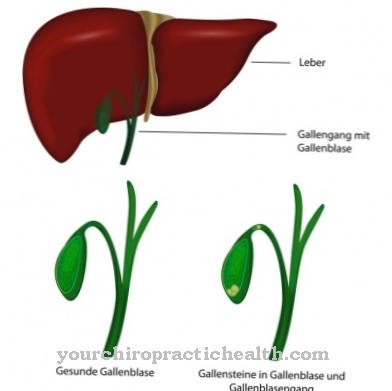

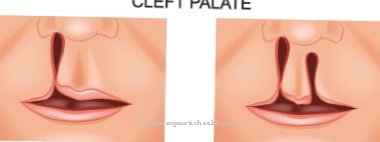
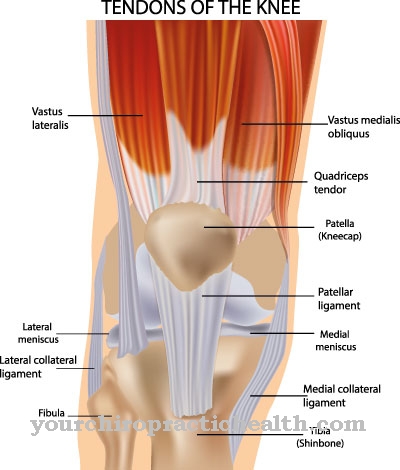
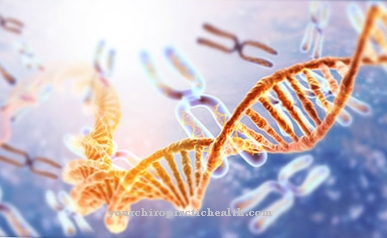





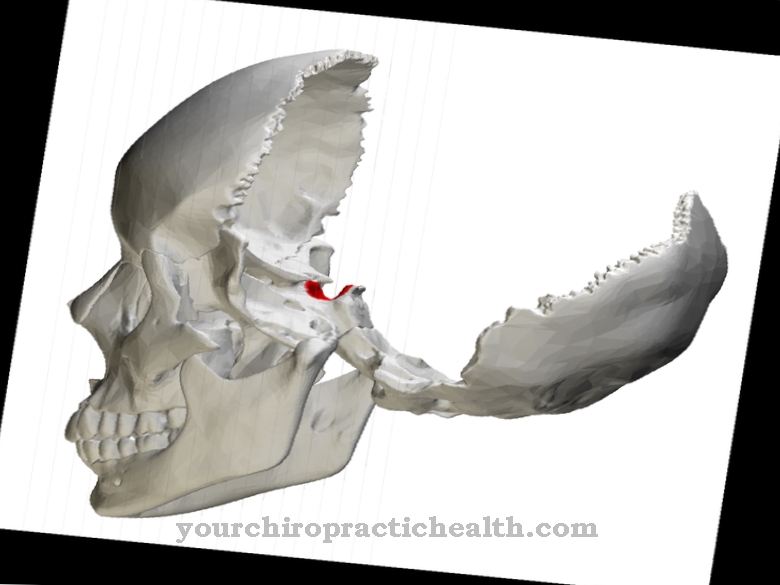
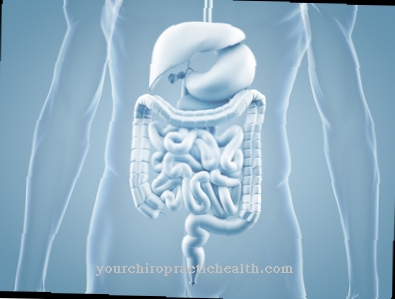

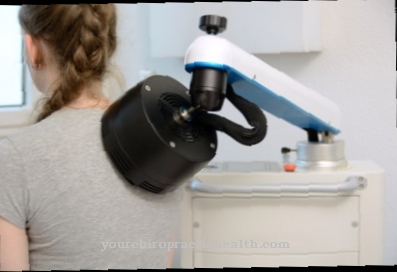
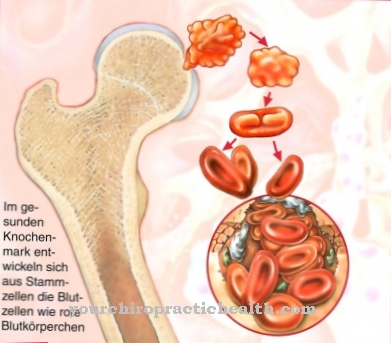


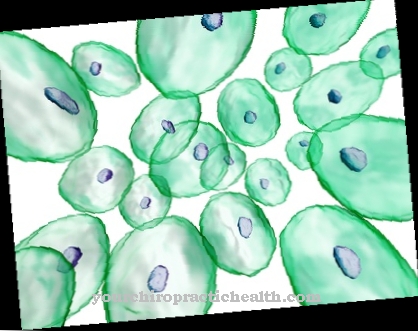

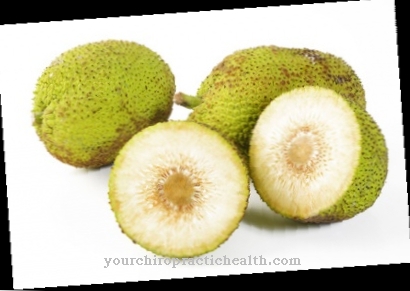

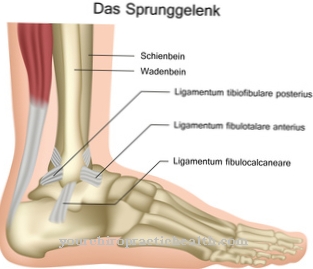

.jpg)

.jpg)
